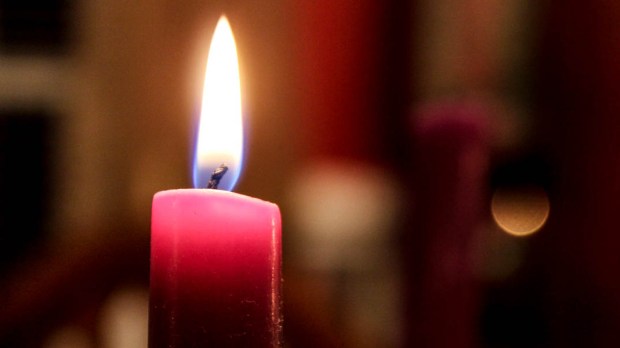Lenten Campaign 2025
This content is free of charge, as are all our articles.
Support us with a donation that is tax-deductible and enable us to continue to reach millions of readers.
In Advent, do we prepare for a birth, a death, or something else? The short answer is: “Yes.” And I fear that in all three categories, we tend to get it wrong.
We may tell ourselves that “Advent is a time of spiritual preparation for the Season of Christmas.” That’s true—if only it were true of us! Just as many Catholics treat the Saturday 4 p.m. Vigil Mass as the “Let’s-Just-Get-This-Out-Of-The-Way!” Mass; just as many Catholics treat Sunday as the vigil for Monday (“When reallife begins!”); so too there are many Catholics who use Advent as a time of preparation for the secular Christmas frenzy—shopping, cooking, decorating, partying, drinking, overeating …
Christ has already been born; the Son of God is already the Son of Mary—we are not preparing for his birth! Advent is a preparation for Christmas only insofar as we need reminding that Christ was born in Bethlehem to begin his mission to save us from our sins. Christmas is mere sentimentality if we aren’t convinced that we’re sinners who need saving!
To prepare ourselves to celebrate the truly awesome truths that God-Who-Saves is also God-Who-Is-With-Us, we need to take out our moral trash, throw down our idols, and ask for the desire to welcome the salvation that is offered to us. If we’re not planning to go to confession during Advent, then we’re not serious about Christmas.
Advent is likewise a time to prepare for death—for Christ’s and for ours. At his birth, he receives the gift of myrrh (Matthew 2:11), which is a foreshadowing of his body being anointed at his burial (John 19:38-40). From his birth, he is marked for death.
Advent is also a time to prepare for our own death.
We’re pilgrims on this earth, and at the end of our days we will have to give an account of our stewardship of our lives, our gifts, and all entrusted to us. The shepherds and wise men trembled with awe and joy seeing Christ face to face. Are we so sure right now that when it is our turn, we will do the same? At any moment, death may come for any of us or Christ will return for all of us, and none of us knows when. (Matthew 24:36) Advent is a reminder of the need for preparation, vigilance, and the humility of those who know that they even at their best they are unprofitable servants in need of the Master’s mercy. (Luke 17:10) Advent is a time to shed what is unworthy of us, to mend what is broken, reclaim our disciplines and virtues, and to go to confession.
I said at the outset that Advent is also a time of preparation for “something else”—something we’re probably inclined to overlook, forget about or discount, namely, the compassion of God.
“Compassion” must not be confused with “pity”; compassion doesn’t mean, “I acknowledge that it’s terrible that you’re you.” The Latin etymology of compassion is cum-passio, “to suffer with.” The Christ of God was born into the world to suffer for us, yes, of course; he also was born into the world to suffer with us. At Christmas we recall that Christ came into the world, and entered into the fullness of the human condition (all except sin), and entered into our limitations, our darkness, our weakness. He boldly and humbly enters all of our hiding places—for we constantly try to hide from God and ourselves all of our sins, illusions, regrets and shames. The Christ of God, the Light of the World, enters into our darkness, our self-imposed prisons, the basements and attics we cower in, and there embraces us, suffers with us, grieves with us, and then offers us a way forward, a way to light and life and even glory—if only we would let him.
Wasn’t it Dietrich Bonhoeffer who said that a proper image of Advent is the image of a cell door unexpectedly ajar, a cell door that can only open from the outside? That image brings us closer to what Advent should be for us—a time to prepare for our deliverance, our emancipation. It is a time to prepare to live forgiven and unshackled. We need time to prepare for such a great rescue because we have acquired habits of mind, heart and practice that blind us to the open door, deafen us to the liberating call, numb us to the strong hands that would lift us up and out.
The opportunity of Advent is this: If we prepare well, then at Christmas time we will gladly embrace and refuse to let go of the one who came to save us.
When I write next, I will continue my reflections on Advent. Until then, let’s keep each other in prayer.

